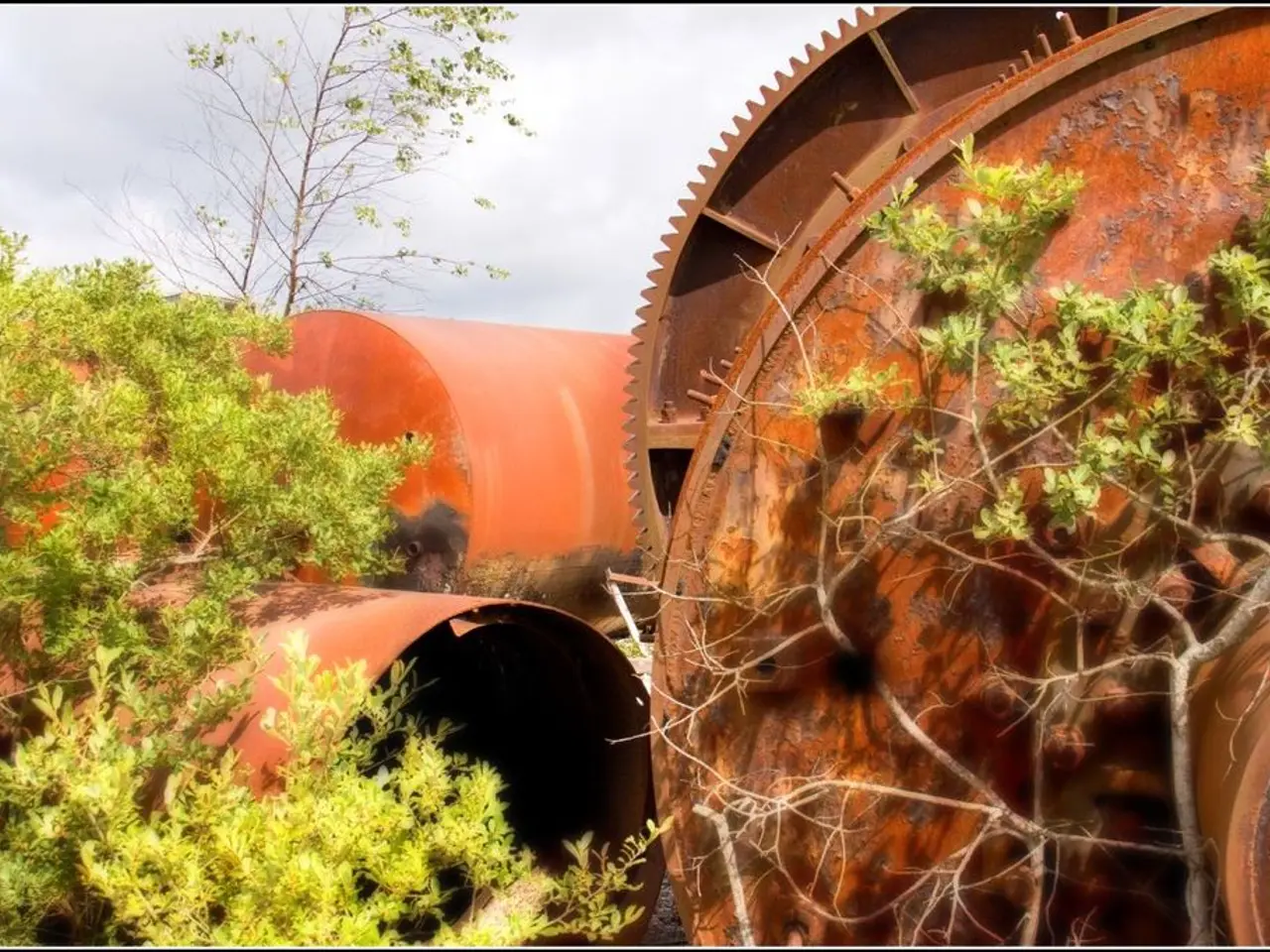Ancient Meteorite, Estimated to Pre-date Earth, Identified after Summer's Spectacular Skies Display Over Southeastern US, According to Scientists
In the skies above Georgia on June 26, 2021, a bright daytime fireball was observed, causing quite a stir. The American Meteor Society received numerous reports of this celestial event, and now, it's been confirmed that the object was none other than a meteorite—the McDonough Meteorite, to be precise.
This meteorite, named after the town of McDonough in Henry County, is classified as a Low Metal (L) ordinary chondrite and is estimated to be about 4.56 billion years old[1][2][3]. That's right, approximately 20 million years older than our very own Earth!
The origin of the McDonough Meteorite can be traced back to the main asteroid belt between Mars and Jupiter. Specifically, it is believed to originate from a group of asteroids linked to the breakup of a much larger parent asteroid around 470 million years ago[3][5].
University of Georgia researchers, led by planetary geologist Scott Harris, have been studying the meteorite since its crash landing. Multiple fragments were analysed, confirming both the meteorite's classification and ancient origin[1][4][5].
The McDonough Meteorite is currently being stored at the University of Georgia for ongoing study, with some fragments publicly displayed at the Tellus Science Museum in Cartersville, Georgia[1][2].
One of the most intriguing aspects of this story is the account of a Henry County resident, who reported a rock falling through their ceiling around the same time the June fireball occurred. This rock was later identified as a fragment of the McDonough Meteorite[1].
Resident Brenda Eckard, from Gilbert, South Carolina, also reported seeing a "big flash in the sky come down and disappear" on June 26[4]. Another dashcam video captured a big flash of light falling through the sky in Lexington County, South Carolina, on the same day[4].
The National Weather Service in Peachtree City reported that the object had broken through the roof and ceiling before cracking the flooring inside the Henry County home[4].
Scott Harris plans to publish a scientific paper about the McDonough Meteorite to further understand the potential threats meteorites pose[1]. His research could provide valuable insights into asteroid breakups, dynamics, and potential asteroid impact threats.
In summary, the McDonough Meteorite is a significant find for scientists, offering a glimpse into our solar system's history and providing valuable insights into the study of asteroids.
| Aspect | Details | |-----------------------|---------------------------------------------------| | Name | McDonough Meteorite | | Date of Fall | June 26, 2021 (Observed bright daytime fireball) | | Location | McDonough, Henry County, Georgia | | Classification | Low Metal (L) Ordinary Chondrite | | Age | ~4.56 billion years, about 20 million years older than Earth | | Origin | Main asteroid belt between Mars and Jupiter; related to a breakup of a large parent asteroid ~470 million years ago | | Size at Impact | Approximately cherry-tomato-sized fragment | | Scientific Importance | Provides insights into asteroid breakup, dynamics, and potential asteroid impact threats |
Sources:
- CNN (2021). Meteorite that crashed into Georgia home is 4.56 billion years old. [online] Available at: https://www.cnn.com/2021/07/08/us/georgia-meteorite-scientific-analysis-trnd/index.html
- The Washington Post (2021). Georgia meteorite is 4.56 billion years old, older than Earth itself. [online] Available at: https://www.washingtonpost.com/science/2021/07/08/georgia-meteorite-older-earth-scientists-say/
- Space.com (2021). Georgia Meteorite That Crashed into Home Is 4.56 Billion Years Old. [online] Available at: https://www.space.com/georgia-meteorite-4-56-billion-years-old.html
- CBS News (2021). Georgia meteorite that crashed into home is 4.56 billion years old, older than Earth. [online] Available at: https://www.cbsnews.com/news/georgia-meteorite-crashed-into-home-older-than-earth/
- The Guardian (2021). Meteorite that crashed into Georgia home is 4.56 billion years old. [online] Available at: https://www.theguardian.com/science/2021/jul/08/meteorite-that-crashed-into-georgia-home-is-456-billion-years-old
This article was contributed to by CNN's Devon Sayers, Brandon Miller, and Zenebou Sylla.
- The University of Georgia researchers, led by planetary geologist Scott Harris, are using the McDonough Meteorite to study asteroids, with the aim of understanding potential threats they pose to us.
- The McDonough Meteorite, originating from the main asteroid belt in our solar system, provides critical information about space-and-astronomy to scientists, offering a rich source of data for the study of weather patterns, as its ancient existence predates our planet and could offer insights into the origins of our world.








